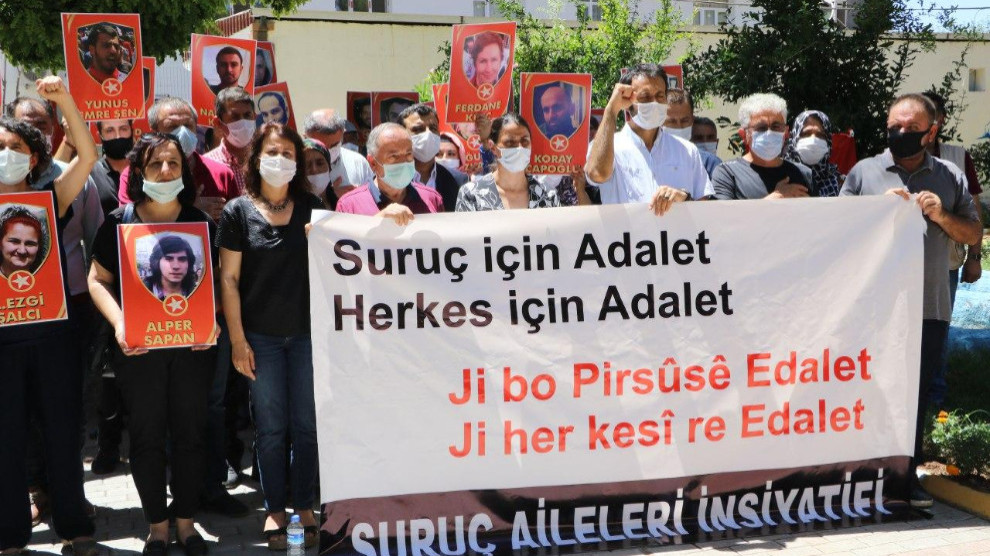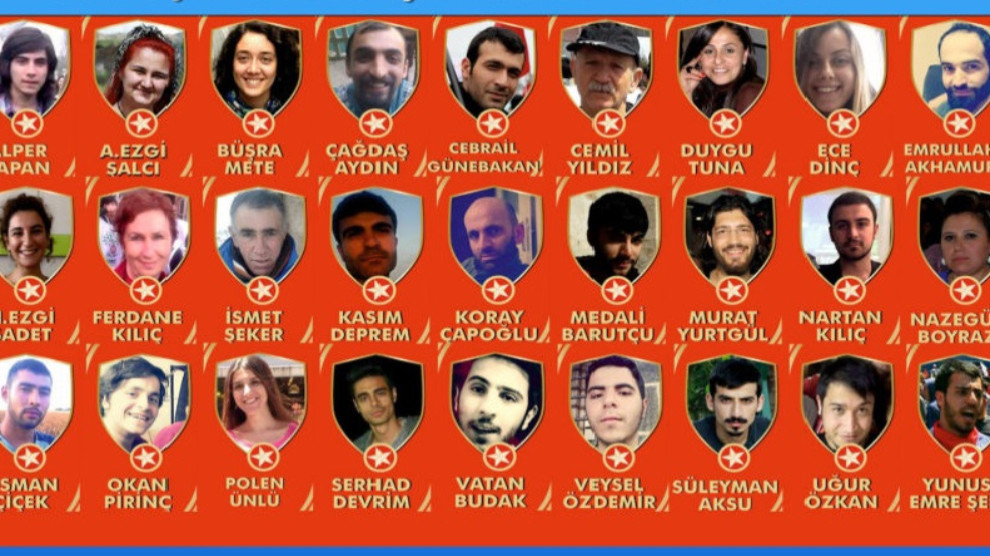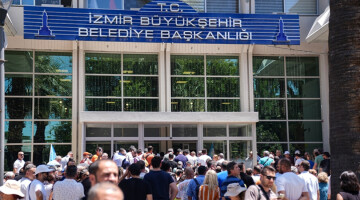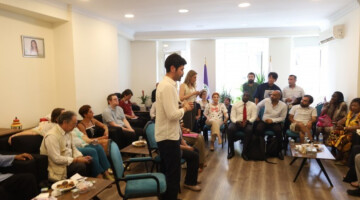In many cities in Turkey and Northern Kurdistan, the victims of the suicide attack in Suruç five years ago are commemorated today. In the attack on 20 July 2015, 33 young people were killed and 104 people were injured.
A memorial service in Suruç has been attacked by police. The scene of the crime - the Amara Cultural Centre - has been under siege by security forces since the early morning. All participants in the event, including survivors and relatives of the victims, were searched at the entrance. When the chairman of ESP Şahin Tümüklü wanted to give a speech in the garden of the cultural centre, police officers entered the area and demanded that the photos of the attack victims be taken down. During a speech of HDP member of parliament Feleknas Uca, the police started the attack and tore up the pictures. Relatives were also denied access to the cemetery. The crowd protested with a sit-in and demanded justice in slogans.

KCK: "Planned and executed by MIT"
The attack five years ago occurred when, at the call of the Federation of Socialist Youth Associations (SGDF), 300 young people gathered at the Amara Cultural Centre to hold a press conference before their departure for Kobanê. The planned trip to northern Syria was intended to be an act of solidarity. The young people wanted to take children's toys and humanitarian aid supplies to the city destroyed by the ISIS.
Mehmet Yapalıal, then police chief in Suruç, had already received intelligence information about the attack in advance. On 16 June 2015, just over a month before the attack, the ex-police chief had received the classification of the assassin as "wanted for terrorism risk". He is the only one who has so far been convicted in the ongoing trial surrounding the Suruç massacre - but only to a symbolic fine- because he did not take any security precautions in the city. Yapalıal preferred to take action against the young people who had arrived for the reconstruction of Kobanê.
In a statement published two days ago, the Kurdistan Communities Union (KCK) again blamed the Turkish secret service MIT for the attack. "These young people were not killed by the ISIS, but by the Turkish state. It was the hostility of Tayyip Erdogan and his AKP government towards Rojava that killed them. The massacre was planned and carried out by MIT," said the KCK.
The statement pointed out that many attacks on the political opposition at that time were carried out under the guise of the ISIS. On 5 June 2015, an attack with several fatalities was carried out on an election campaign rally of the HDP in Amed (Diyarbakır). On 25 June, the ISIS carried out a massacre in Kobanê, in which hundreds of people were brutally murdered. Finally, on July 20, the attack took place in Suruç. The bloodiest attack in Turkey's history took place on 10 October 2015 at a peace rally in Ankara, killing over a hundred people.
"Afterwards, Kurdish cities were attacked, hundreds of young and old people, women and children were killed, more than ten cities were razed to the ground. It is no coincidence that all these massacres took place during the same period and that the AKP attacked the opposition. All attacks are the result of the destruction plan, which was decided by the National Security Council on October 30, 2014.”
Although the attacks were carried out by the ISIS, the client was MIT, said KCK and continued: "When Erdogan realized that he could not stay in power, he formed an alliance with the ISIS and the MHP. Before that, hundreds of agents had been infiltrated into the ISIS anyway. The MIT itself has set up departments in Turkey through which new ISIS members have been recruited. At the same time, it has recruited hundreds of agents from ISIS sympathizers who have entered Turkey from all over the world. In this way, Turkey has gained control of the ISIS. Those who do not see this fact can neither understand the ISIS nor find out who the political force behind the attacks committed in the name of the ISIS is.”













